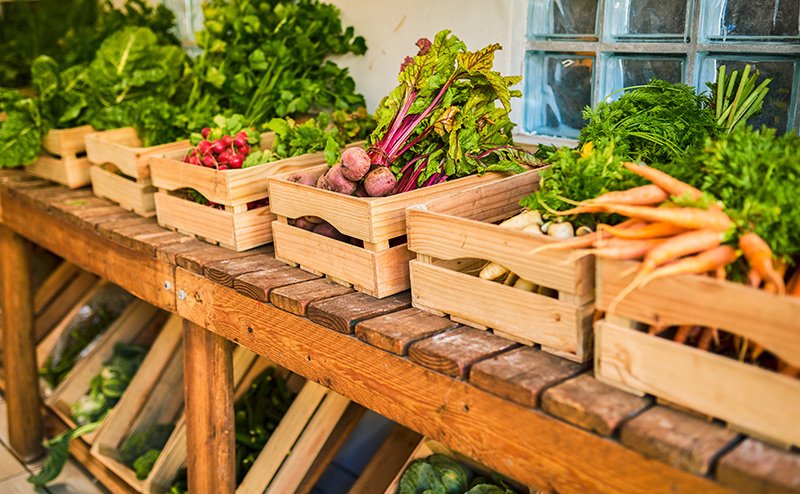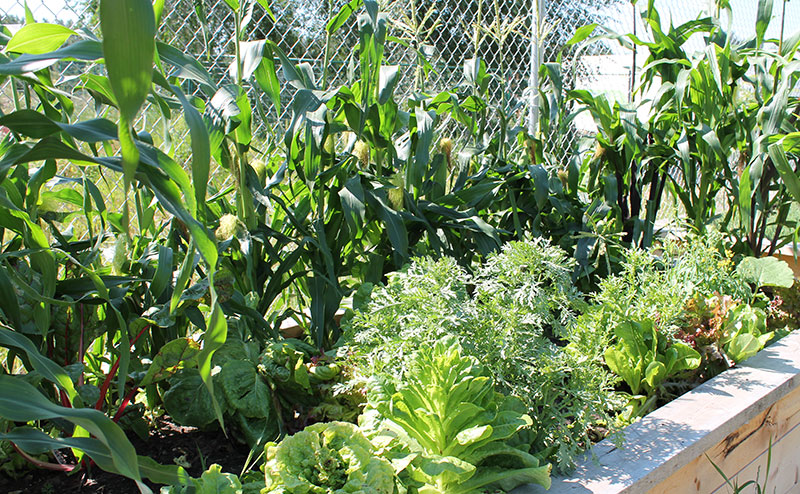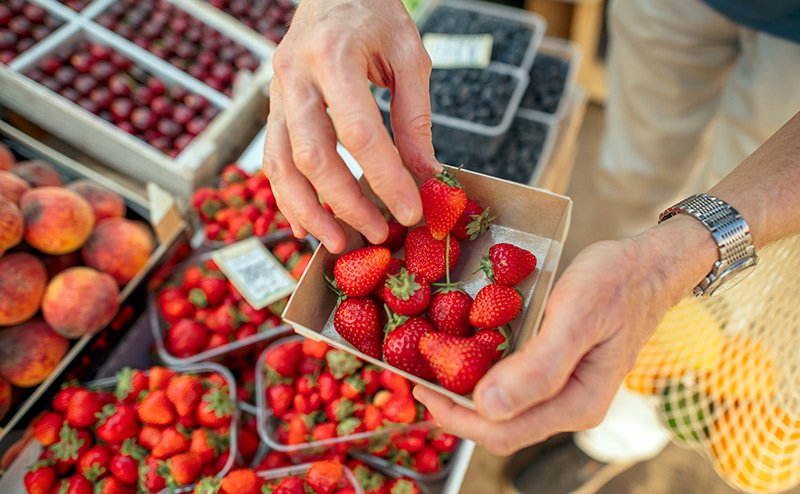fresh is a high-level strategy that helps guide Edmonton towards the vision of “a resilient food and agriculture system that contributes to the local economy and the overall cultural, financial, social and environmental sustainability of the city.”
fresh: Edmonton’s Food and Agriculture Strategy, was developed by an Advisory Committee comprised of 15 stakeholders and experts in agriculture, food systems, economic, community and land development, and supported by project consultants and City staff.
Urban and Commercial Beekeeping
Learn how to apply for permits and keep bees as a hobby and commercially.
Urban Hens Program
The Urban Hens program enables residents to keep backyard hens.
Urban Farms
Explore options to create opportunities for farming and agricultural development on City land.
Veg Instead !
A City of Edmonton project to encourage and help Edmontonians to grow vegetables for personal consumption and sharing.
fresh Strategy Implementation Plan Background
fresh implementation has been underway since 2012 and has included projects and data reports.
Projects and Partnerships
- Formation of the Edmonton Food Council
- City Council approval of urban beekeeping
- Edmonton's urban hens program
- Veg Instead project
- Vacant Lots for Urban Agriculture project
- Hello, Let's Eat project
- City Council approval of a Zoning Bylaw change to enable more urban agriculture activities throughout the city
Research and Engagement
- Collaborating with the Edmonton Food Council and the Insight Community to survey
- Edmontonians on their perceptions of local food in 2016 and 2017
- Collaborating with the Edmonton Food Council, the City's Tree Inventory, and the Open Data team to map out Edible Fruit Trees in Edmonton
- Working with University of Alberta Sustainability Scholars to conduct research on Surplus Food Redistribution and Edible Placemaking
- Public conversations around local and regional food systems including Let's Talk Food and fresh MEÆT
Past Public Engagement
In developing the Strategy, the City of Edmonton used a variety of methods to consult with residents, community organizations, businesses and other stakeholders.
The City of Edmonton created the Food and Urban Agriculture Advisory Committee during the development of fresh to offer guidance and experience in exploring the many complex issues associated with food and urban agriculture policy.
The committee included members who have considerable knowledge, experience, expertise and interest in food and agriculture issues in Edmonton. The Advisory Committee was instrumental in ensuring that fresh was a made-in-Edmonton strategy that reflected the context of Edmonton and the Capital Region.
Four open houses were held at the beginning of October 2012 after the draft version of fresh was written, and before the document was finalized. In conjunction with the open houses, an on-line survey was conducted to allow citizens to give their input on the nine strategic directions and the recommendations within the strategy.
Online Survey
A public opinion survey on food and agriculture issues in Edmonton ran for much of the month of June. The survey was one of the tools we used to gather input from citizens for the development of a food and agriculture strategy. The survey closed on June 23, 2012.
A total of 2,269 people from the Capital Region participated in the survey. Everyone who participated had a chance to win an iPod.
An innovative consultation process was designed to engage citizens in discussions on food and agriculture policy issues.
The Citizen Panels began their discussions at the end of April 2012 and ran till June 2, 2012. Randomly selected citizens gathered in groups of 12 every week for 6 weeks to discuss the issues in depth.
The Centre for Public Involvement from the University of Alberta tracked the progress of these groups as they explored recommendations for the evolving food and agriculture strategy. Their recommendations will be integrated into the discussions on a wider strategy.
Food in the City Conference
As part of the exploration of this important subject, the City of Edmonton hosted an exciting conference that was held May 25-26, 2012.
The conference keynote speaker was Wayne Roberts, author of The No-Nonsense Guide to World Food and former manager of the Toronto Food Policy Council. Workshops were led by local experts on food and agriculture issues. HB Lanarc Consultants presented their work to date on a food and agriculture strategy, including research findings on food and agriculture opportunities in Edmonton and the latest feedback from stakeholder consultations.
Conference Videos
Keynote Speaker: Wayne Roberts
Food and Urban Agriculture Advisory Committee
Citizen Panel 2: Healthy and Food Secure
Citizen Panel 3: Stronger and more vibrant local economy
The City organized focus groups made up of those who have a strong interest or knowledge of food and agriculture policy issues, a strong potential to influence food and agriculture policy issues, or those who might reasonably expect to be significantly impacted by the results of this project.
A total of 9 focus groups held their first discussions between April 30 and May 4, 2012.
Another round of focus groups held discussions in mid-June 2012.
The groups were divided into a number of categories, representing a broad cross-section of those in the community having knowledge, experiences and interests in food and agriculture issues.
- Farmers and producers
- Food retail and restaurants
- government
- Development community
- Culture
- Local processors and distributors
- Community organizations
- Education
- Social welfare and health




